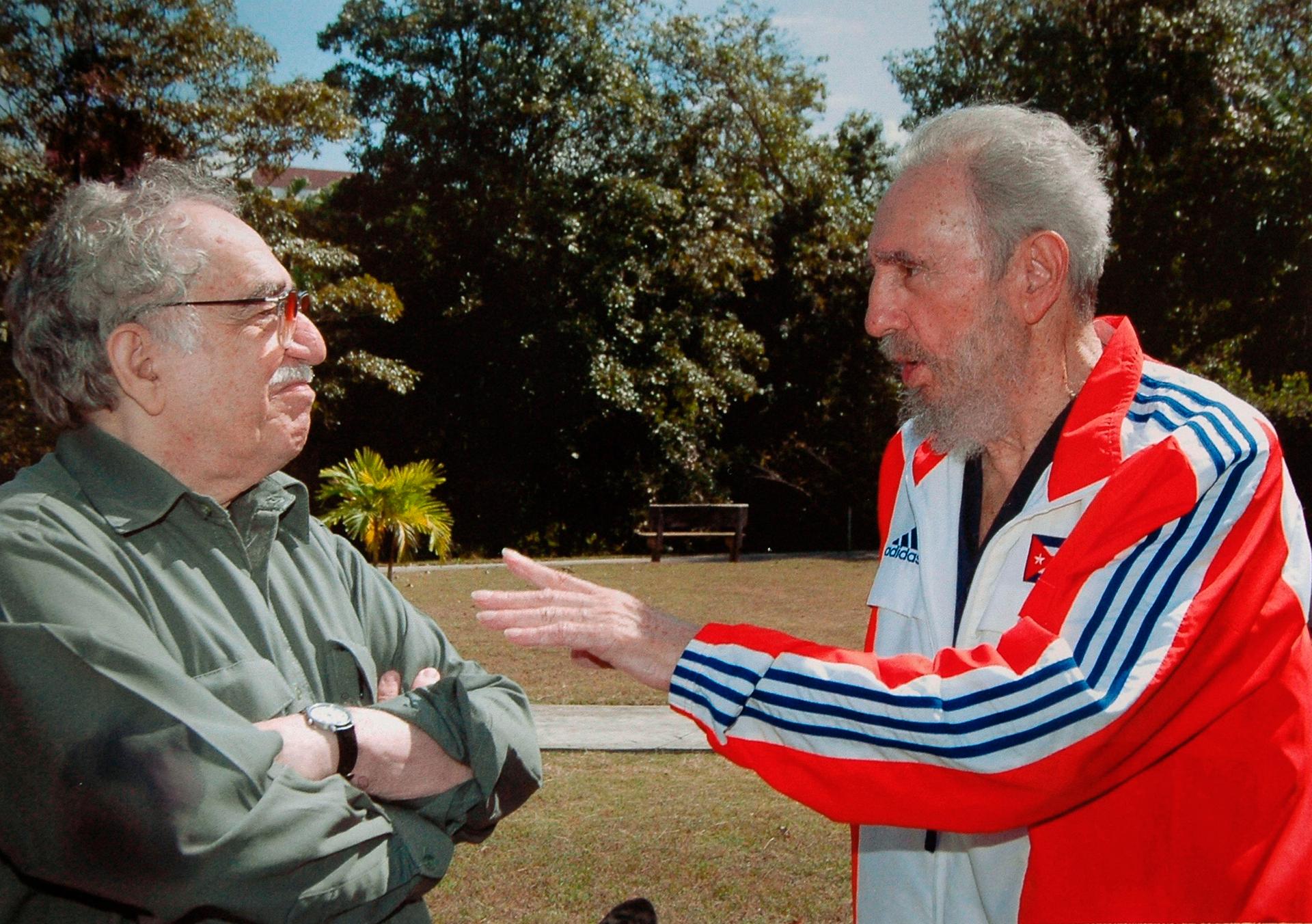Gabriel Garcia Marquez had Fidel Castro read his books to catch errors before publication
Cuba's President Fidel Castro, right, talks to Colombian writer Gabriel Garcia Marquez in this file photo taken on March 12, 2007 in Havana, Cuba.
There are a lot of great opening lines in literature. But this one by the late Gabriel Garcia-Marquez is among the best: "Many years later, as he faced the firing squad, Colonel Aureliano Buendía was to remember that distant afternoon when his father took him to discover ice."
That's the way he starts the book "One Hundred Years of Solitude." The novel is a masterpiece of magical realism, a world where magical elements blend into reality.
It's what Garcia-Marquez is known for.
But few realize that Fidel Castro played a part in those books. Not as a character or inspiration, but as an editor.
“Many people say that Fidel was an eager reader,” says Stephanie Panichelli-Batalla. “He would read all the time. You would give him a book one night and the next day he would have read it and have excellent comments on the book and great constructive feedback on it. And so, he even became one of the first reviews sometimes of Gabo’s books.”
Panichelli-Batalla wrote about this and more in her own book, "Fidel and Gabo." She says that "Gabo," as Garcia-Marquez is known to many, would give Fidel a book of his to read before he went to the publisher. And Fidel would come back with corrections. “It became a friendship that was not just political,” she says.
Apparently, Castro didn’t really influence the book's themes or character development. Panichelli-Batalla says Fidel was more about details. “For example, if the characters in the books would use a gun for a certain scene or something like that. And Fidel would say, ‘Well, no. That’s impossible because that type of gun wouldn’t be used in that way. You couldn’t use it with that specific bullet.’ It was this eye for detail that Fidel really had and he would relay those corrections to Gabo.”
So what does this say about Castro?
Panichelli-Batalla believes it confirms what many people who met Fidel have said: He’s brilliant. “You know, he might have done whatever he did in Cuba with his government and his people and his society. But he was without any doubt a very smart person. And so he was definitely very reliable for this type of reviews.”
Fidel Castro. Line editor.
Garcia-Marquez caught quite of bit of flack for his support of his friend. But Panichelli-Batalla believes the friendship with the Cuban dictator doesn’t impact the way people read the Nobel prize-winning author’s book. Essentially, there’s a difference between his politics and his art, she says. There’s also another fact. “His literature has never been directly linked to Cuba,” she says. “So in some way you can easily separate one from the other.”
